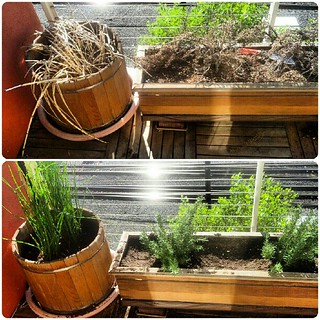Misunderstood – Annual Flu Vaccination
In Pre-health Sciences, many students come to the program with misconceptions about vaccines, from both public health and immune response perspectives. When I first started teaching, I might have begun a lesson by asking students to share an experience they had with a vaccine and why they think it happened, and then follow up with content about what actually happens when you receive a vaccine. But no one really likes to be told they’re wrong after stating a closely held opinion or point of view, and many students may feel defensive and are unlikely to change their mindset with this approach.
An analogy for annual flu vaccination could be presented with a weeding the garden analogy. If you weed a garden bed once, you’re not done for life. Over time, weeds will grow in or different varieties may grow in the vacant space. But you can help prevent the occurrence of weeds with weed barrier fabric and mulch. But these are also not a lifetime of prevention. Weed barrier fabric breaks down over time. Mulch also breaks down, or gets swept away in the wind and rain. Some weeds can even grow in mulch, though not as well. By regularly maintaining the weed barrier fabric and mulch layer, you can prevent the growth of weeds. With this preventative maintenance, your garden can thrive without being choked out or competing for resources with weeds.
Picture analogy: “Before and After. #gardening #Emeryville #california #EastBay” by rtaibah is licensed under CC BY-NC-SA 2.0
If you get the flu once, you’re not done for life. You can get it again over time if you are exposed again or to different variants of the virus. The annual flu vaccine is like preventative maintenance – regularly maintaining the immune system to prevent illness. Of course, flu vaccines are not 100% effective, but even if you do get sick it generally will not be as severe. You can live your life without being knocked out for several days will illness, and then recovery.
Vaccine hesitancy is a significant public health issue all over the world, and there is some research that shows that health education through the use of analogies can improve vaccine knowledge and uptake (e.g. Health Education through Analogies: Preparation of a Community or Clinical Trials of a Vaccine against Hookworm in an Endemic Area of Brazil).
TweetExample for "Misunderstood – Annual Flu Vaccination":
https://bank.ecampusontario.ca/wp-content/uploads/2021/06/8045306456_8987c814f7_n.jpg


Leave a Reply